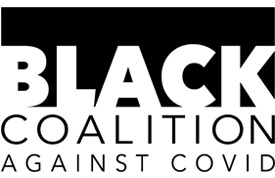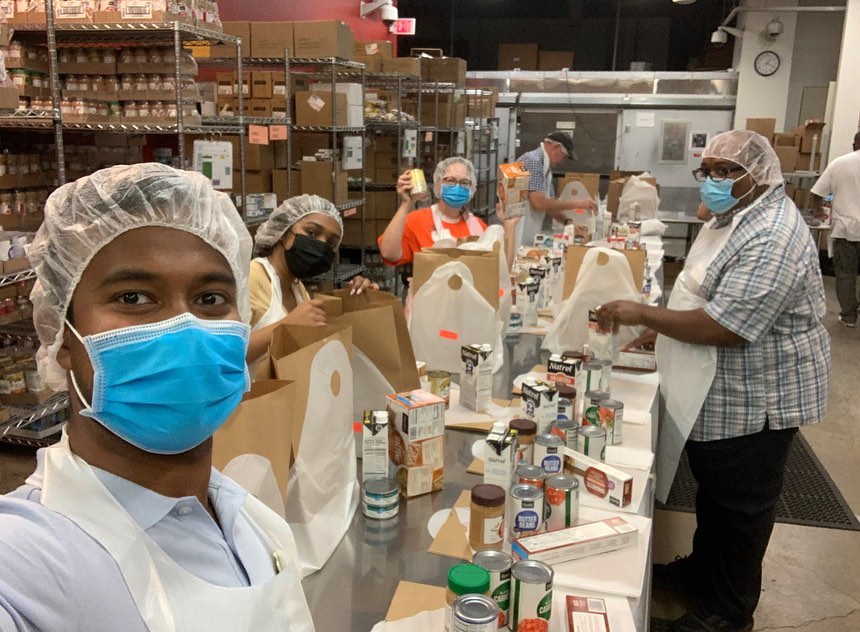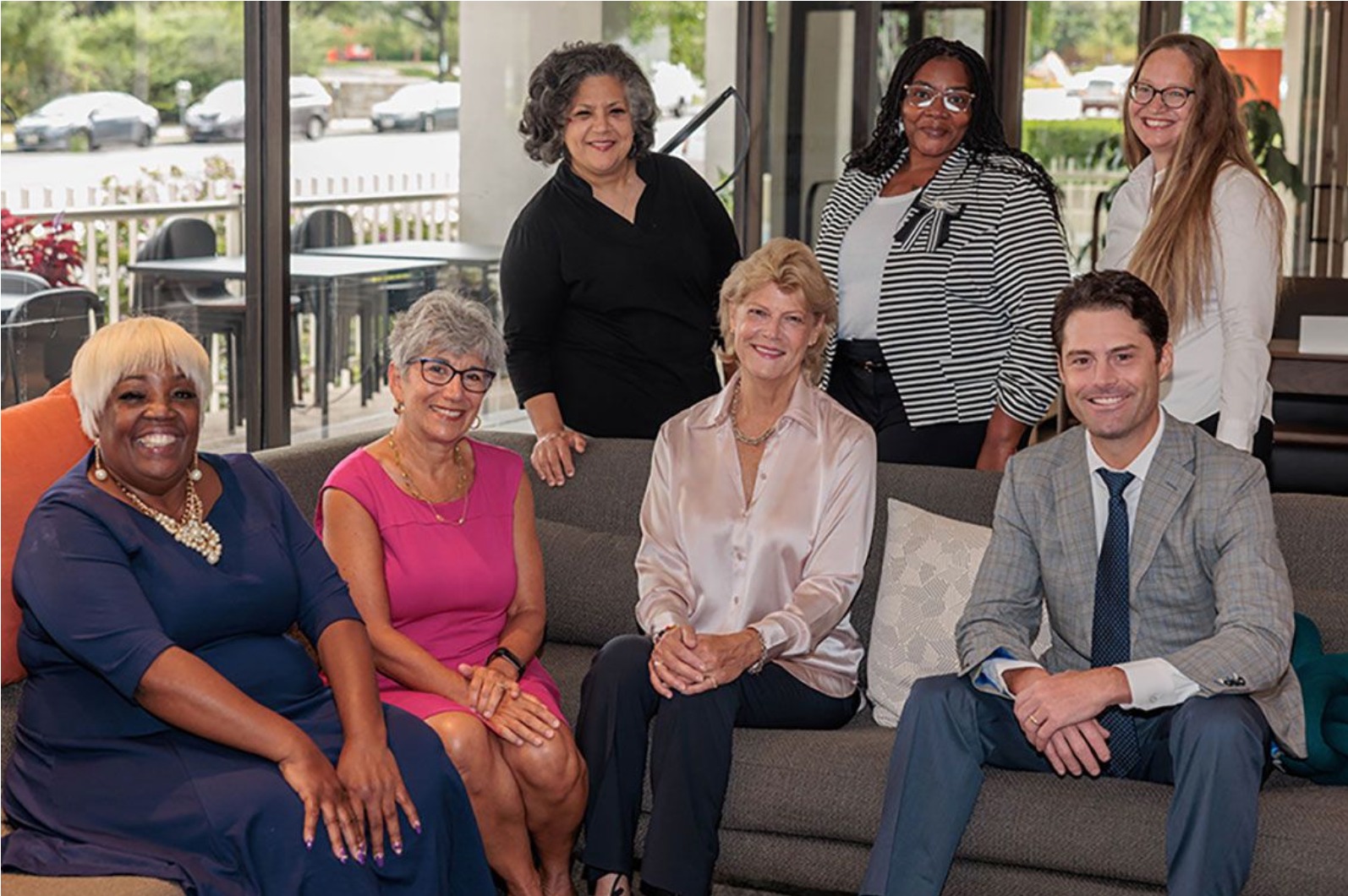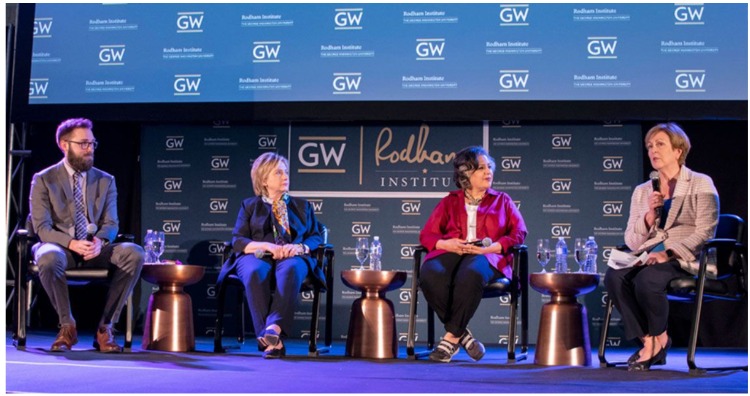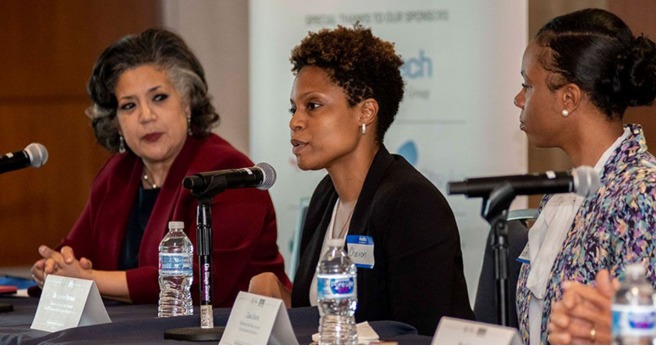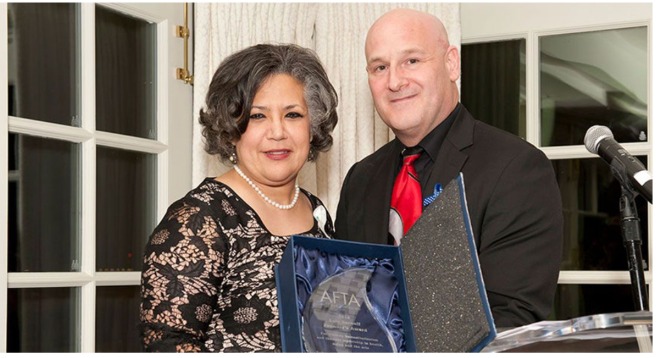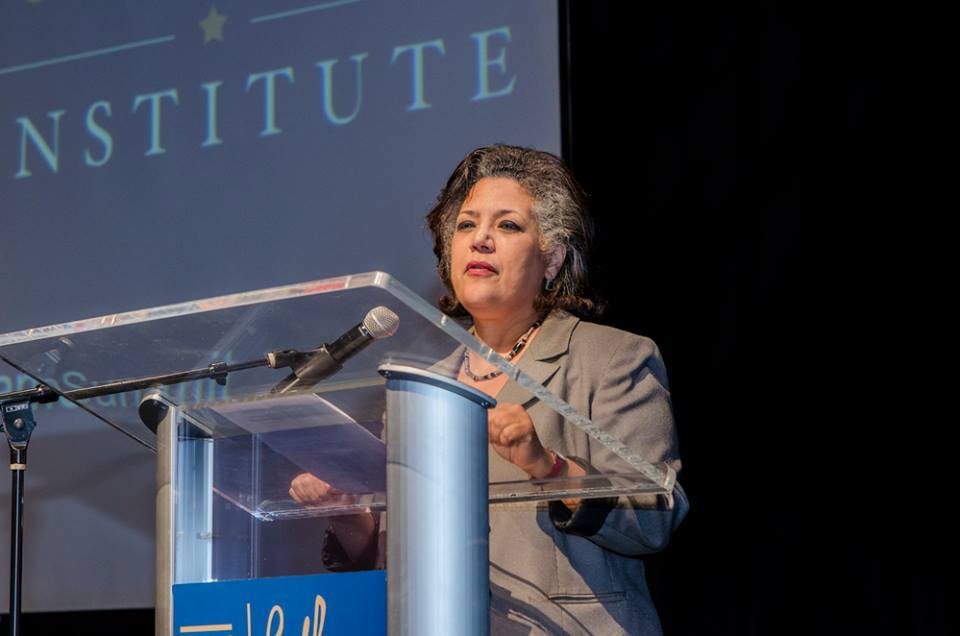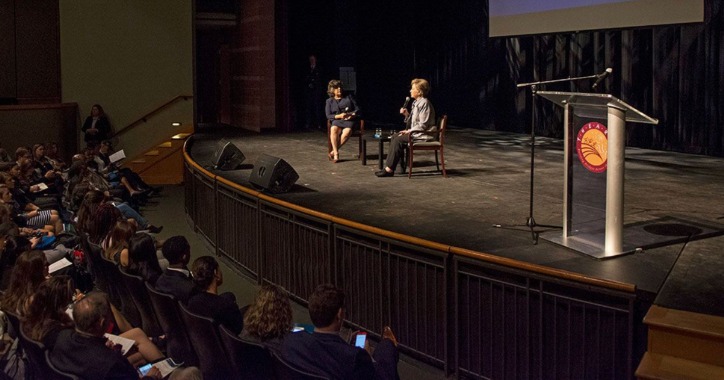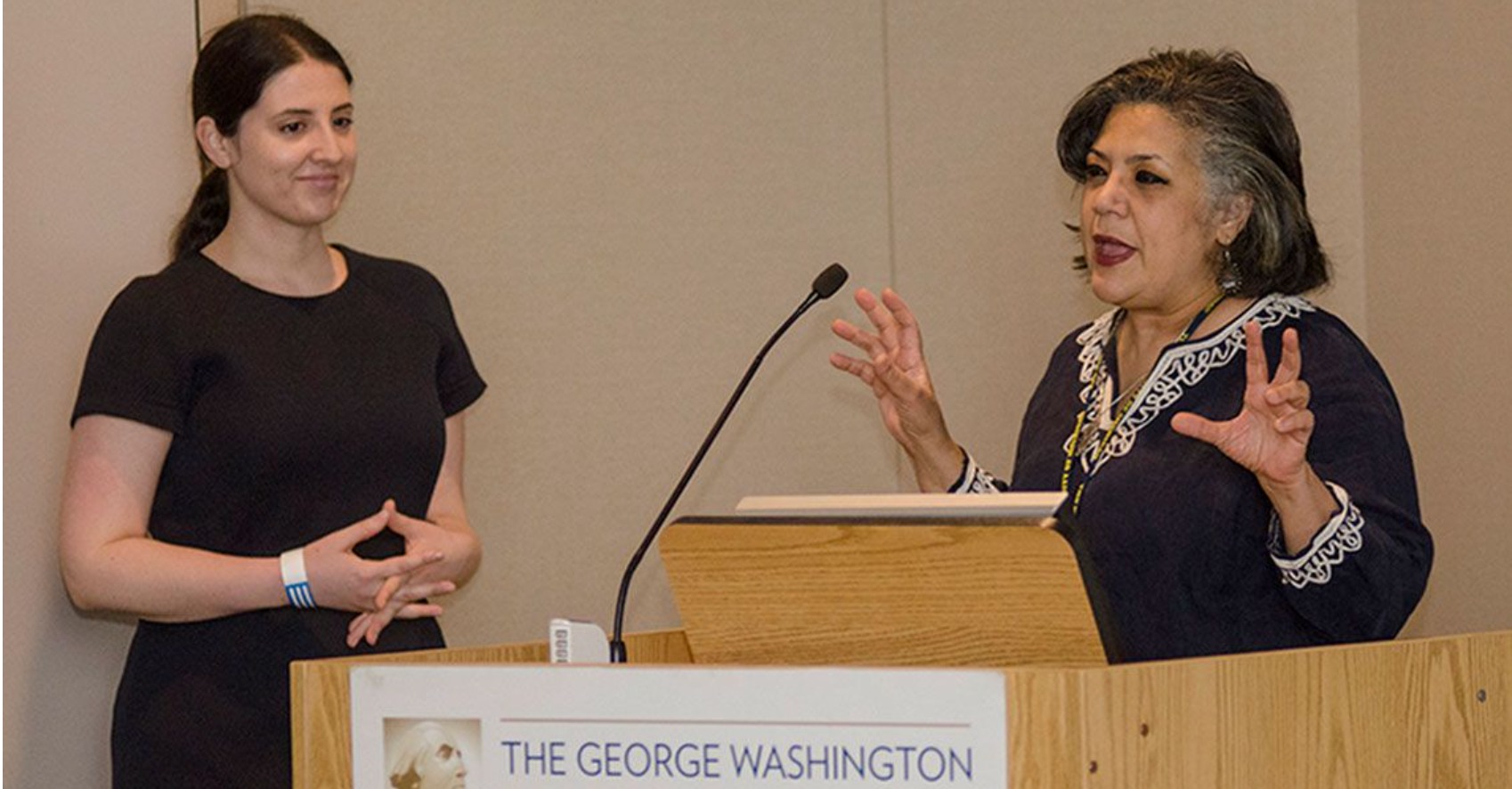The Black Coalition Against COVID (BCAC) is an organization that aims to provide trustworthy information to minority communities about COVID, support direct services in Washington DC as well as across the nation. Rodham Institute Founding Director, Dr. Gigi El-Bayoumi co-founded this organization in the midst of the COVID pandemic in April 2020. In 2021, the Rodham Institute appeared on the Black Coalition Against COVID Exemplar List for the creation of the ‘Don’t Miss Your Shot’ event, which administered COVID-19 vaccinations to residents in Ward 8. Partnering with Pennsylvania Avenue Baptist Church and the Far Southeast Family Strengthening Collaborative, the event brought together many residents and advocates in Ward 8 during a crucial time. The Rodham Institute conducted nine 90-minute sessions to educate staff and organizers, and these organizers went door to door to recruit residents of Ward 8 for the event. This was an event that was held exclusively for Ward 8 residents. Further, the Rodham institute and partners were able to secure non-traditional clinical spaces for administration, with the event being held at the Southeast Tennis and Learning Center, and Uber promotional codes were offered to residents to provide free transportation to and from the event. The third pillar of this event was leveraging patient experience. Offering on-site childcare, care packages, this time was used as an opportunity to educate the public about COVID-19, the pandemic, and information about vaccinations.
Author: jge28@georgetown.edu
When the Whole is Greater: The Rodham Institute Champions Health Equity During Pandemic, Trauma
May 24 2021
Jehan “Gigi” El-Bayoumi, MD, READ ’88, has an apt analogy for tackling complex issues, borrowed from her father. “When you’re eating a hamburger or a vegan burger, you don’t eat the lettuce and then the tomatoes and then the bread, and then squirt some ketchup and mustard in your mouth,” she says. “You eat the whole thing.”
It’s that approach — embracing whole, rather than piecemeal — that makes the Rodham Institute successful. Health equity, explains El-Bayoumi, who is also the founding director of the Rodham Institute, is about more than just removing obstacles to health care. It’s about adequate food resources, education, and exercise, where you live, and the quality of your drinking water. Over the past year, the Rodham Institute has tackled health equity in tandem with pandemic and mental health challenges.
The institute team — El-Bayoumi, Tracie Bass, Kristina Williams, and Ashanti Carter — has coordinated the delivery of hot meals to more than 3,000 people, distributed 560,000 donated masks and hand sanitizer, and ensured children at Brookland Manor, a historically Black housing development in Ward 5, received Christmas presents. They’ve connected patients to mental health services and transitioned from in-person events to a robust webinar series on health equity. They also started a special webinar series that features community partners Praise Baptist Church in Ward 8 and Pennsylvania Avenue Baptist Church in Ward 7.
“Our philosophy is that we not only stand with people during good times, but it’s especially important that we stand with them during difficult times,” El-Bayoumi says. “I’m so proud of our collective work because we were there during people’s real needs, supporting people and organizations.”
The Rodham Institute’s strategy of partnering with other organizations — it now boasts 154 partners — has allowed it to expand and enhance its promotion of health equity. During COVID-19, for example, the institute, after joining forces with Gallaudet University, learned of disparities within the deaf and hard of hearing community.
“When we think about health equity, it has to be more than just race, ethnicity, or even class,” El-Bayoumi explains. “You have to examine backgrounds and [learn about] this notion of minorities within minorities.”
El-Bayoumi later hosted family physician James Huang, MD; Poorna Kushalnagar, PhD, Director of the Deaf Health Communication and Quality of Life Research Lab at Gallaudet University; and Stacy Abrams, CEO of Why I Sign, for a session of the Rodham Impact Speaker Series on opportunities to decrease those health disparities.
While the team transitioned to technology, organized, found and leveraged new partnerships, and puzzled out the logistics of distributing food and supplies, El-Bayoumi found herself temporarily sidelined. Already a cancer survivor, she was diagnosed with cancer again in the summer of 2020. She continued to see patients over Zoom but was otherwise isolated at home.
“The biggest challenge was really trying to be involved because I couldn’t leave, I couldn’t distribute food, but what I could do was education,” she said. “Be it media through the Black Coalition Against COVID, sharing our experiences, connecting people, bringing people on to various coalitions and initiatives, that’s very important.”
Her efforts culminated in a high-capacity vaccination event at the Southeast Tennis and Learning Center in Ward 8 on April 3, a milestone that encapsulated what the institute aims to do. El-Bayoumi and Cora Masters Barry, former first lady of Washington, D.C., along with The GW Medical Faculty Associates (MFA) Event and Operational Medicine program, led by Drew Maurano, PA-C, unit leader for the D.C. Department of Health’s Medical Reserve Corps and associate clinical professor of emergency medicine at SMHS, brought together organizations, schools, and volunteers to offer comprehensive care to D.C. residents.
Medical, nursing, pharmacy, and dental students as well as medical faculty from GW, Georgetown University, and Howard University gave vaccinations, provided referrals, and spoke about inexpensive, preventive health care options. Richard Katz, MD, director of the Division of Cardiology, Walter A. Bloedorn, MD, Chair in Cardiology, Bloedorn Professor of Cardiology, and professor of medicine at SMHS, and members of the GW Heart and Vascular Institute conducted blood pressure screenings and gave away blood pressure cuffs. Whitman-Walker providers talked about PrEP and sexual health. The institute’s health literacy partners provided educational services. The Black Coalition Against COVID, on whose steering committee the Rodham Institute sits, connected the institute to Uber, which offered free rides. Capital Area Food Bank and Food and Friends handed out boxes of food. Free childcare was available, and a DJ played gogo music. Most importantly, 10 community-based organizations found participants.
“This is how I believe we can really tackle and solve and work to improve health equity,” says El-Bayoumi, who added that one participant told her she didn’t want to leave; she was having too much fun. “It’s great to get vaccinated, but there are other needs in the community as well. People have food security issues and other health problems. Using the vaccine event to get people reconnected to health care was an opportunity too good to pass up.”
Still, the institute’s work wasn’t complete. On May 6, 2021, the Rodham Institute hosted its annual summit, designed to bring together community and health care partners to discuss a critical issue. This year’s theme, though it was chosen last year just days before the country shut down, was particularly relevant: “Breaking the Silence and the Stigma of Mental Illness.”
“We couldn’t have a more timely topic to discuss,” says Barbara Bass, MD, READ ’86, vice president for health affairs, dean of SMHS, and CEO of the GW MFA. “It was very normal to be stressed, and everyone’s resilience has been challenged during this year.”
With sessions dedicated to elements of mental health — special populations, children, spirituality, and community actions — the institute sought to provide the same inclusive approach to knowledge as it does to health care. Closing out the day was former Secretary of State Hillary Clinton; the institute was established in honor of her mother, Dorothy Rodham, an advocate for using education to achieve social change.
For El-Bayoumi and Clinton, mental health, especially stress, is a crucial component of overall health. This past year, El-Bayoumi says, was a double pandemic: the pandemic of COVID and the pandemic of racism. It’s also been a time of trauma and the loss of family members, jobs, and childcare, all of which exacerbate issues of food insecurity or a lack of educational and health care resources. Combined, this year has been simply stressful. And the solution is to look at the sum of the parts. Both Clinton and El-Bayoumi advocate investing in health care, in economic development, in food, in education, in everything that improves the length and quality of life.
“Your dad is right,” Clinton says, referring back to El Bayoumi’s hamburger analogy. “You can’t pick the pieces apart and say, ‘OK, let’s do it one at a time.’ You’ve got to do it holistically.”
Rodham Institute to Launch the “Geriatric Career Builders Registered Apprenticeship Program
WASHINGTON (September 13, 2022) — The Rodham Institute has been awarded a $713,000 grant from The Washington Home, a charitable foundation, to launch the Geriatric Career Builders Program (GCBP), the first-ever, multi-employer, registered apprenticeship program for direct care workers in the District of Columbia.
The program will bring together employers, labor, training schools, and educational institutions to build a workforce of adult learners, residing in the District, specifically in Ward 5, Ward 7, and Ward 8, to meet the health and support needs of the District’s growing senior population. The program is designed to develop a pipeline for entry-level health professionals that offers the opportunity for career advancement and upward economic mobility.
“There is a major shortage of direct care workers in the District and across the country, which has reduced access to quality health care and has had significant adverse impacts on the most vulnerable members of our society, including seniors and individuals who live with disabilities,” said Gigi El-Bayoumi, MD, founding director of The Rodham Institute . “The GCBP provides an on-ramp to high-demand health care careers for adult learners, while filling a critical need in our city.”
“1199SEIU Healthcare Workers East Maryland/DC and the 1199SEIU Maryland/DC Training and Employment Fund are excited to engage with The Rodham Institute’s work on the Geriatric Career Builders Apprenticeship Program. 1199SEIU and the Maryland/DC Training and Employment Fund have experience developing and managing healthcare registered apprenticeships throughout the region. We have witnessed how the “earn as you learn” model of registered apprenticeships assists both new healthcare workers and seasoned professionals begin and advance their careers. Additionally, partnering with our healthcare employers, these programs have been able to close the skills gaps experienced in healthcare settings. This program’s innovative design will train the apprentices, close the employers’ skills gaps, and engage DC residents, offering them a career pathway in a growing healthcare industry.”
The GCBP, conceived in collaboration with the DC Coalition on Long Term Care, targets two groups of potential employees including adult learners and students. Adult learners in the District, particularly those in Wards5, 7 and 8, will receive training and employment opportunities for entry-level healthcare positions in geriatric care and more advanced training to become certified medication aides. Students interested in the healthcare field will have access to financial support, ongoing mentorship, and career coaching to achieve their professional goals. Notably, embedded within the program is a progressive wage scale that ensures that program participants are compensated at higher levels based upon the acquisition of skills and experience.
“We all have a role to play in the investment in solutions that address systemic issues like limited staff availability to care for our community’s older adults,” said The Washington Home CEO/CFO Phyllis Dillinger, adding, “[Our organization] is committed to supporting caregivers and the critically ill through strategic funding initiatives with valued partners like The Rodham Institute.”
Rodham Institute Celebrates the Art of Medicine and the Science of the Soul at 6th Annual Summit (2019)
June 17 2019
For most people, the link between the arts and health is a crooked line, but take a closer look and you can find many examples of the arts playing a role in health and wellbeing.
This idea, “Incorporating the Arts to Improve the Health and Wellbeing of Washington, D.C.” is what brought out community leaders and clinicians to the 6th Annual Rodham Institute Summit, May 23, 2019.
Throughout the years, the summit has addressed many of the topics that impact community health, including health equity and access to care, obesity, mental health, and support of youth in underserved communities.
“One of the reasons we decided to choose ‘Incorporating the Arts to Improve the Health and Wellbeing of Washington, D.C.,’ as the theme of this year’s summit is that the arts have really been the glue that binds our society together. The arts are really who we are as human beings,” explained Jehan “Gigi” El-Bayoumi, MD, READ ’88, founding director of the Rodham Institute.
This year’s event was held in the Southeast Tennis and Learning Center and live-streamed by online health resource publication BlackDoctor.org. More than a dozen members of local organizations kicked off the day-long summit, with each giving brief presentations or performances on how they are incorporating music, dance, art, and storytelling into their community health and engagement efforts.
The annual summit also served as the backdrop for a presentation of the Rodham Institute’s Beacon of Light award, given to change-makers in the community. This year’s award went to Cora Masters Barry, founder and CEO of the Recreation Wish List Committee, founder of the Southeast Tennis and Learning Center, and former first lady of Washington, D.C.
“Where we’re sitting now, in this beautiful facility with all of these wonderful people, this is what an idea, and somebody who wants to make a difference, looks like,” El-Bayoumi said of Barry. “She saw a need, and was a persistent visionary. She used tennis as a hook to engage kids in education.”
“The Southeast Tennis and Learning Center is dedicated to changing the trajectory of the lives of the children it serves,” said Barry. “We use whatever we can to get them here. Tennis is the hook, but education is the key.” Since the center opened its doors in 2001, Barry added, thousands have benefitted from its athletic and academic resources, and more than 100 area children have gone on to earn full college scholarships.
“In many of those cases, I’m not sure the kids would have gone on to college at all.” “I am thrilled as I look at the program, you’ve had such a terrific lineup of people,” said the day’s featured guest, former Secretary of State Hillary Rodham Clinton. “The fact that you’re holding this event at the Southeast Tennis and Learning Center says so much about what the Rodham Institute stands for and what you are hoping to achieve. Cora started this with a firm belief that bringing services to the community would attract young people, and those services would help them to achieve their God-given potential. Last night and today I met some of those young people that have been influenced by this center, and I am thrilled.”
Clinton, in describing her own efforts to incorporate the arts into wellness programming, told El-Bayoumi about a program offered through the Clinton Foundation called Too Small to Fail, aimed at promoting early childhood interaction and its impact on development.
“We recommend talking, singing, and reading to infants, babies, and toddlers,” said Clinton. “There is research that shows that when a baby is being stimulated by someone talking, reading, or singing, the brain lights up. There is evidence that it helps to build neural connections; it literally helps to create a better foundation for learning.”
Deborah Rutter, president of the Kennedy Center for the Performing Arts (Kennedy Center), and Thomas Cheever, PhD, program director for Sound Health at the National Institutes of Health (NIH), presented the summit’s keynote. The pair described the partnership between the NIH and the Kennedy Center in association with the National Endowment for the Arts, which takes a scientific look at the impact of music on the brain, cognitive development, and health.
Rutter attributed the arrival in late 2015 of noted soprano Renée Fleming as a member of the artistic advisory team at the Kennedy Center to the rebirth of an outreach program between the Kennedy Center and NIH. Fleming, she recalled, was eager to find a more significant way to link music and the arts with health and wellness.
A chance encounter between Fleming and NIH Director Francis Collins, MD, PhD, which led to an impromptu performance by Fleming with Collins accompanying her on acoustic guitar, served to make that critical connection. Six months later, the collaboration began hosting workshops and webinars, and funding research into the effects of music on the intricate circuitry of the brain, as well as the therapeutic potential of music as therapy for neurological disorders.
One project, Cheever said, involved a young jazz musician, Matthew Whitaker, and Charles Limb, MD, a neuroscientist at the University of California, San Francisco. Together they explored what happens in the brain under the influence of music. Whitaker underwent a functional MRI while first listening to an intentionally dull lecture as a baseline, then while listening to music he enjoyed, and finally while he played music. The study found that listening and playing music triggers vast areas of both hemispheres of the brain, rather than the smaller regions the lecture activated.
Cheever went on to describe another research project involving rhythmic auditory stimulation on Parkinson’s patients. Researchers, he said, have discovered that by listening to a steady metronome rhythm while walking, the tremors and halting gait common in the neurodegenerative disorder were reduced.
“It’s really a dynamic change from what is really a simple intervention. Rhythm is just one component of music. … This is just one example of the promise of using music as an additional way to treat diseases that we currently aren’t able to fully treat with conventional measures.”
The explanation for how music can have such a significant impact on the brain, Cheever said, might be found in the OPERA (Overlap, Precision, Emotion, Repetition, and Attention) hypothesis. “You might have heard of a term called neuroplasticity,” Cheever said, describing the phenomenon of the brain recognizing a need and adapting to it. The OPERA hypothesis suggests that, when all of the conditions are met, neural plasticity drives the brain to operate at a higher level.
“We know that circuits in the brain are disrupted in certain conditions, and we also know that music is a potent way to activate some of that neural circuitry.” He added that researchers are trying to explore whether stimulating the brain with music might have even greater therapeutic effects on some of these brain circuits. “Our brains are really capable of responding to music and creating it in amazing ways, and all of those reasons are why the NIH is so excited to be involved with this project.”
The link between the therapeutic use of arts programming — particularly the influence of music, visual arts therapy, movement-based programs, and creative writing and expression — and positive health outcomes are well established, said El Bayoumi. She added, “The Rodham Institute seeks to expose and connect communities in Wards 7 and 8 to evidence-based programming and the great work happening in the arts in Southeast D.C. and across the city.”
Promoting Diversity in the Health Professions
May 12 2019
To widen the pool of diversity in the health careers, it would be wise to focus attention on training and education, suggested Jehan “Gigi” El-Bayoumi, MD, READ ’88, during the 3rd Annual Thought Leadership Summit. “We need to start way back in the pipeline and throw the net wider to identify more talent and include other health professions.”
The summit was co-hosted by the Rodham Institute at the George Washington University (GW) and BlackDoctor.org (BDO), an organization with a mission to provide health resources and information to the African American community. “It was established in conjunction with BDO’s health care gala and awards ceremony, taking advantage of the expertise of the leaders and BDO members in attendance,” said Robert Ingram, senior vice president for strategic programs and initiatives at BDO.
This year’s theme, Reclaiming Our Time, focused on the need for more people of color in the health care professions and the need for greater health equity among diverse patient populations in underserved areas.
“This is the time to synergize, catalyze, connect, and convene,” said El-Bayoumi, who serves as director of the Rodham Institute and professor of medicine at the GW School of Medicine and Health Sciences (SMHS). El-Bayoumi spoke of her experience training in Washington, D.C., and observing the population shift over time as underrepresented populations were further pushed out from the center of the city into southeast D.C. and Maryland. “We have a responsibility and obligation to uplift people and give a voice to those who are muted and voiceless.”
The summit, which reached more than 12,000 viewers on Facebook Live, featured several panel discussions, including one sponsored by GW and the Rodham Institute on increasing diversity in medical training and the overall health professions.
“Physicians are not the end all be all,” said El-Bayoumi, who moderated the panel, titled “A Better Practice: Culture and Careers in Medicine.” “We need pharmacists, physical therapists, and certified nursing assistants.”
Panelists included Chavon Onumah, MD, MPH, assistant professor of medicine at SMHS; Zakiya Edens, director of the Mass Media Academy at Calvin Coolidge Senior High School in D.C.; and Ron Carlson, executive director of the Maryland Regional Direct Services Collaborative, a partner of the Rodham Institute.
Onumah, who serves as the assistant director of the Primary Care Clerkship, shared her experience looking into how the internal medicine residency program could increase the diversity of its recruits. “I tried to look at best practices and become a change agent within my institution in advocating for more holistic reviews of applicants,” she said. “It’s not just about the scores or what schools they went to. What else are they bringing to the table?”
Guests at the summit also heard from experts on topics including the difficulties black women face communicating pain with their physicians, the perception of mental health in the black community, and increasing racial and ethnic diversity in clinical trials.
Through their discussions, the panelists shared their experiences with stigma and health inequity as patients who were not taken seriously and as caregivers who have seen patients hesitant to seek medical care out of the same fear.
Yolanda Haywood, MD, READ ’87, BA ’81, senior associate dean for diversity and inclusion at SMHS, charged guests to go forward from the summit with at least one action item that they wanted to address as a result of their time at the event.
“We have wonderful power, energy, and creativity. There’s a lot of work to be done,” she said. “So let’s get to work.”
Rodham Institute’s El-Bayoumi Honored by Arts for the Aging
November 28, 2018
Congratulations to Jehan “Gigi” El-Bayoumi, MD, executive director of The Rodham Institute, on receiving the 2018 Lolo Sarnoff Founder’s Award presented by Arts for the Aging (AFTA).
El-Bayoumi was recognized for the work she has done with the Rodham Institute in the Washington, D.C., community. She received the award for her humanitarianism, philanthropy, and thought leadership in health, aging, and the arts.
“It’s an honor to be recognized by the community for the work that we do and to be presented with the Lolo Sarnoff Founder’s Award,” said El-Bayoumi.
This year, the Rodham Institute has focused on supporting the role of the arts in promoting health and health equity, including partnerships with AFTA and the Kennedy Center in support of the Sound Health Initiative.
The Lolo Sarnoff Founder’s Award is named after AFTA’s founder, a pioneer in the field of creative aging who suggested artistic expression in its many forms improves health and enhances quality of life throughout the human lifespan. Previous winners include Associate Supreme Court Justice of the United States Ruth Bader Ginsburg and pianist Irving Fields.
The AFTA 30th Anniversary Gala and Awards Dinner was hosted on Oct. 15 at The Hay-Adams in Washington, D.C.
AFTA is a nationally recognized social service nonprofit that combats isolation and spreads joy and better health to older adults and their care partners in Greater Washington, D.C., through regular participation in multidisciplinary and therapeutic groups arts programs led by professional, trained artists.
Rodham Institute Partners with Maryland Regional Direct Services Workforce collaborative
WASHINGTON (June 21, 2018) — The Rodham Institute now serves as the home of the Maryland Regional Direct Services Collaborative. This new partnership greatly expands and strengthens its ability toward assuring the availability of well-trained direct services workforce throughout Washington, D.C., and Maryland.
One of the key goals of the Collaborative is to promote new thinking and innovation in the development and training of direct service workers. A project already underway provides 30 high school seniors, who may be at risk of not graduating, the opportunity to become certified nursing assistants (CNAs). The students will receive their training as part of the school day, and they will receive transportation from high school to a nursing home to complete their practicum. After receiving their high school diploma or GED, students will have the opportunity to take the certification exam. Their exam fees will be covered.
“There is a real need for CNAs, as well as medical assistants and personal health attendants, but they need to have graduated high school,” said Gigi El-Bayoumi, MD, founding director of the GW Rodham Institute and professor of medicine at the GW School of Medicine and Health Sciences. “Looking at this through the lens of health equity, high school graduation is the strongest social determinant of health, and is strongly tied with life expectancy. This project will shepherd these students toward high school graduation and into a healthcare career, and participation in this program will improve the students’ own health outcomes. You can imagine the halo effect this opportunity has on the individual high school student, their family, and their community.”
This pipeline program would be the first project of its kind to cross state lines, focusing on communities in both Washington, D.C., and Maryland. The project will not only address challenges in Ward 8, but in Prince George’s County, Maryland, as well. The Collaborative furthers the GW Rodham Institute’s mission to improve health equity through increasing the number of health professionals from communities in need.
“Individually you can do a lot, but by working collaboratively you can do so much more,” said Ron Carlson, who chairs the Maryland Regional Direct Services Collaborative Steering Committee. “What’s exciting about this partnership is the joining of individuals and organizations who are committed to make a positive difference. It is very encouraging to see the business, healthcare, and education communities – in both the public and private sectors – rallying together to take on the hard work of assuring that older adults and persons with disabilities have the care and support that are needed from direct services workers.”
The Maryland Regional Direct Services Collaborative was launched by the Paul R. Willging Endowment, established in 2012 to provide student scholarship support and community learning at the Howard Community College in Columbia, Maryland. The Endowment partnered last year with the Erickson School of Aging at the University of Maryland Baltimore County to convene the region’s first summit on direct services workforce training.
In addition to the pipeline program and other new initiatives, the Maryland Regional Direct Services Collaborative will be undertaking a regional environmental scan to identify the issues and areas of the region where new and additional work is needed.
5th Annual Rodham Institute Reflects Importance of Community (2017)
November 12, 2017
In 1902, Justina Ford, MD, set up a medical practice in her Colorado home after being told she could not work in the local hospitals because she was an African American and a woman. However, she did not let that stop her from serving the people in her community, delivering 7,000 babies during her 50-year career.
She surely got discouraged many times over the course of those 50 years, said Jehan “Gigi” El-Bayoumi, MD, READ ’88, founding director of the Rodham Institute, at the start of the 5th Annual Rodham Institute Summit, held Nov. 3 at THEARC in southeast Washington, D.C.
That kind of fortitude, El-Bayoumi continued, is why “whenever we’re feeling bad, whenever we’re feeling discouraged, we need to remind ourselves that there are many Dr. Justina Fords who came before us.”
The theme of this year’s summit was “Building and Strengthening Resilience in Our Community.” The summit’s message was reflected by keynote speaker Hillary Rodham Clinton, former senator and secretary of state, whose mother, Dorothy Rodham, inspired the creation of the institute. GW President Thomas J. LeBlanc introduced Clinton, remarking on her four decades in public service and her longtime advocacy for human rights, democracy, and civil society. “She has been an advocate for underserved communities her entire career,” he said.
The mission of the institute is improving health equity in Washington, D.C., through community collaborations, health education, and service learning.
Clinton’s mother embodied resilience. Raised in a loveless household, Rodham fled her home at the age of 14 to work as a housekeeper and babysitter in an effort to find a better life, and in spite of her past, she grew to become a caring and thoughtful mother and friend.
“My mother told me along the way of this very difficult childhood that there were people who showed kindness to her, and I think that’s right in line with the theme of building and strengthening resilience,” Clinton said. “I personally think kindness is one of the most important gifts you can give someone to help them feel like they’re worthy, like they’re important.”
Clinton asked the audience members, “What can we as a community do to help people overcome their challenges? Everyone has something in their lives that knocks them down, how do we help them get back up?”
Clinton said that begins with future generations. “I really believe you start with young people and … recognize that they not only can learn something about their own health, but actually be ambassadors about health to people in their families or people around them.
“I am absolutely sure that we can build in more individual resilience and more community resilience and, facing what we face in our own country today, we can build in more national resilience,” Clinton added. “But it takes effort, it takes work … it takes the kind of interventions and information and education and pathways and opportunities that [Rodham] is trying to provide.”
In addition to the talk from Clinton, the summit also featured community panels. The first featured Ruth Watson Lubic, founder and president emerita of the Developing Families Center, and Almeta Keys, MEd, MDiv, executive director of the Edward C. Mazique Parent Child Center.
The second panel, “Building a Resilient Community,” focused on the efforts of community members in D.C.’s Wards 7 and 8 to form partnerships and collaborations to achieve better health outcomes.
“It’s a big tent, and we want as many people who are interested in better health outcomes … to get in the tent, because we need each and every one of you to help,” said Calvin Smith, chair of the Ward 8 Health Council and director of government and community relations at BridgePoint Healthcare. “We’re trying to break down silos.”
Rev. Deborah K Webb, MDiv, founder and CEO of DKWebb Ministries, agreed with Smith’s tent analogy. “As pastors we have been strengthening, building, and rebuilding resiliency in communities for decades, certainly in Ward 8,” she said. “That’s why we come together under the tent … this is a collaboration to see if we can help to mitigate some of the social determinants of health.”
She said that includes working with primary care and behavioral health practitioners in underserved communities to destigmatize mental health disorders and help people not just physically but mentally.
In addition, Rev. Kendrick E. Curry, PhD, MDiv, senior pastor at Pennsylvania Avenue Baptist Church, spoke about his vision to make his church a “one-stop shop” that features a clinic or day hospital that would serve the congregation.
“We’ve been dabbling in health, dealing with issues in and around our community,” he said. “The reality of it is, many [people] don’t have primary health care. Their primary care is going to the emergency room.
“What we need is your support,” he added. “We need people to come out, and volunteer, and to be able to say ‘I’m willing to put my hand in your hand,’ and we can work together to build better collaborations.”
Rodham Institute Hosts Fifth Annual Summit to Promote Health Equity in DC (2017)
WASHINGTON (Nov. 6, 2017) — Leaders from across Washington, D.C. came together to attend the 5th annual Rodham Institute Summit to discuss health equity in the District. Those on the front lines of making quality, compassionate health care accessible to all had the opportunity to hear from Secretary Clinton on this year’s theme, “Building and Strengthening Resilience in the Community.”
“What can we do to help more people overcome their challenges?” said Secretary Clinton. “Everyone has something in their lives that knocks them down. How do we help them get back up?”
In a discussion with Jehan ‘Gigi’ El-Bayoumi, MD, founding director of the Rodham Institute, Clinton also discussed the importance of resilience.
The event, held at THEARC in southeast D.C., featured speakers Reverend Kendrick E. Curry, PhD, MDiv, senior pastor at the Pennsylvania Avenue Baptist Church; Almeta Keys, executive director of the Edward C. Mazique Parent Child Center; Ruth Watson Lubic, CNM, EdD, founder and president emerita of Developing Families Center, Inc.; Calvin Smith, chair of the Ward 8 Health Council; and Reverend Deborah K. Webb, MDiv, founder and CEO of DKWebb Ministries. The summit also included a poster presentation and celebrated filmmakers who created videos related to the summit’s theme.
The Rodham Institute, housed within the seeks to apply the transformative power of education to help future and current health care providers achieve health equity in D.C. It works in the following priority areas:
- To nurture at-risk youth and promote careers and opportunities in health care to create a future health care system led by dedicated, equity-aware professionals
- To train current and future health professionals in applied health equity
- To collaborate with the community locally and nationally to support and enhance the work already being done to create greater access to health care
“Building and strengthening resilience in our communities is so important,” said El-Bayoumi. “Working with our incredible community partners, as we had the opportunity to do in today’s summit, is critical to making an impact.”
Rodham Institute Teach-In Prioritizes Health and Housing
March 29, 2017
The idea for the inaugural Rodham Institute Teach-in, held March 24, came from founding director Jehan “Gigi” El-Bayoumi’s childhood.
“Those of you of a certain age may recall teach-ins were the way people got educated about South Africa’s apartheid system, and certainly that’s how I grew up,” recalled El-Bayoumi, M.D., READ ’88. “The concept of a teach-in is that all learners here … bring different lenses, different experiences, different expertise.”
With an informal, conversational structure, the teach-in focused on the concept of neighborhood and the “built environment,” or how housing affects health, with a mixture of media: videos, panels, and question-and-answer sessions. The thread weaving it all together, however, was storytelling.
“I actually think that these more individual conversations and stories and anecdotes build and bring to life the issues that we’re talking about, and that’s the point of this teach-in,” El-Bayoumi said.
The stories — and the potential solutions offered by the storytellers — highlighted key issues facing people without easy access to care or affordable, quality housing. Baltimore City Health Commissioner Leanna Wen, M.D., for example, related her efforts following the Freddie Gray protests in April 2015.
“After the unrest in Baltimore City … what people may have seen were these videos of cars and stores being burned, but what they may not have seen were all the individuals in our city who did not have access to medications and to food, because their pharmacies and stores were burned down,” she said. She and her staff set up a prescription and food resource hotline and went door-to-door in the affected neighborhoods. Her team received two recurrent questions when residents opened their doors: What candidate is this for, and what survey is this?
“Our residents weren’t trying to be sarcastic or ungrateful, but they were telling us in no uncertain words that they always saw us there for our needs, not theirs,” Wen said. “The work that’s cut out for us in academia, in communities, in policy, is we have to go to where they are. We have to address the needs they’re identifying as the most important. We cannot simply be lip service.”
Susie Bathgate, M.D., associate professor of obstetrics and gynecology at GW SMHS, echoed Wen’s statement. “[We need] more outreach, being able to go where patients are,” she said.
Some of Bathgate’s patients, whom she described in what El-Bayoumi termed “vignettes,” are homeless pregnant women struggling to balance both their health and a sense of stability. In one case, Bathgate, who focuses on high-risk pregnancies, was helping a pregnant 19-year-old patient who came from an abusive household.
“She was staying with friends a few weeks at a time. No prenatal care. [She] ended up in our care at about 33 weeks gestation. Unfortunately, pretty shortly thereafter, she delivered [twins] early,” Bathgate recalled. “I remember my conversations with her, being 19 years old, not having a home to go to, having two babies in the NICU. What I had in my power to do was to [connect her with] a social worker.”
Bathgate described two other patients, both of whom were pregnant and in adverse situations — one was employed but living outside, the other lived in a shelter and had a 9-month-old child — and needed assistance. The former was able to find housing through Catholic Charities, the latter came into Bathgate’s care after trying to commit suicide.
It’s these types of situations that the Rodham Institute and the panelists are trying to solve. Having advocates – like Bathgate and Wen – is critical to ensuring that patients are healthy. As panel member Jessica Kleinman, staff attorney with Children’s Law Center, noted, “one in six people need legal help to be healthy.” In her experience, health is a direct result of appropriate housing.
In one of her cases, a family, using a locally based voucher, rented a home that had mold, lead-based paint, and mice infestations. “The child has asthma and has had repeated ER visits,” she added. Per protocol, Kleinman did an initial inspection of the home, and with evidence to establish housing code violations, wrote a strongly worded letter to the landlord.
“In this particular case, the landlord right now is being responsive,” she said. “I’m hopeful that we can get things done without having to go to court.”
In other cases, however, Kleinman’s seen a “terrible cycle” of discrimination and retaliation from landlords against tenants. It’s precisely why she thinks it’s crucial that Washington, D.C., create more affordable housing and more programs to support families. “I do personally hope for a day when we don’t need lawyers in every case, because we should be able to navigate the system without having to file lawsuits against people,” she said.
Another teach-in panelist, Kristal Wortham, executive director of eNotion Foundation, whose son has paranoid schizophrenia, raised another serious issue related to housing: life events, she said, can lead to homelessness, and 50 percent of those who are homeless have a serious mental illness.
“What’s important to understand about mental illness is you’re living in mental illness because, for whatever reason, you’re not getting treated. That is the difference between mental health and mental illness,” she said. “When you don’t get treatment, your brain doesn’t get the appropriate care it needs to repair itself.”
The solution, she said, is to be vigilant about mental health and to be conscientious around others; knowing what might trigger someone could be unpredictable. “Your mental health should always be a priority,” she said. “You are working with fragile populations, but more importantly, you have the ability to save a life. If you’re not able to think and function properly, how will you be able to save someone else?”
El-Bayoumi posed a similar question to teach-in participants at the conclusion of the event: “How can we not only take the information that we’ve learned — we’ve heard so much from the heart, the stories that people have shared — but now [take] the next step. How do we go to action, but not action for action’s sake? Action that allows for things that can be built, maintained, and sustained and financially can go on?”
With the idea of teamwork and collaboration in mind, El-Bayoumi noted, “We’re in a fix right now, so we have to come together.”
